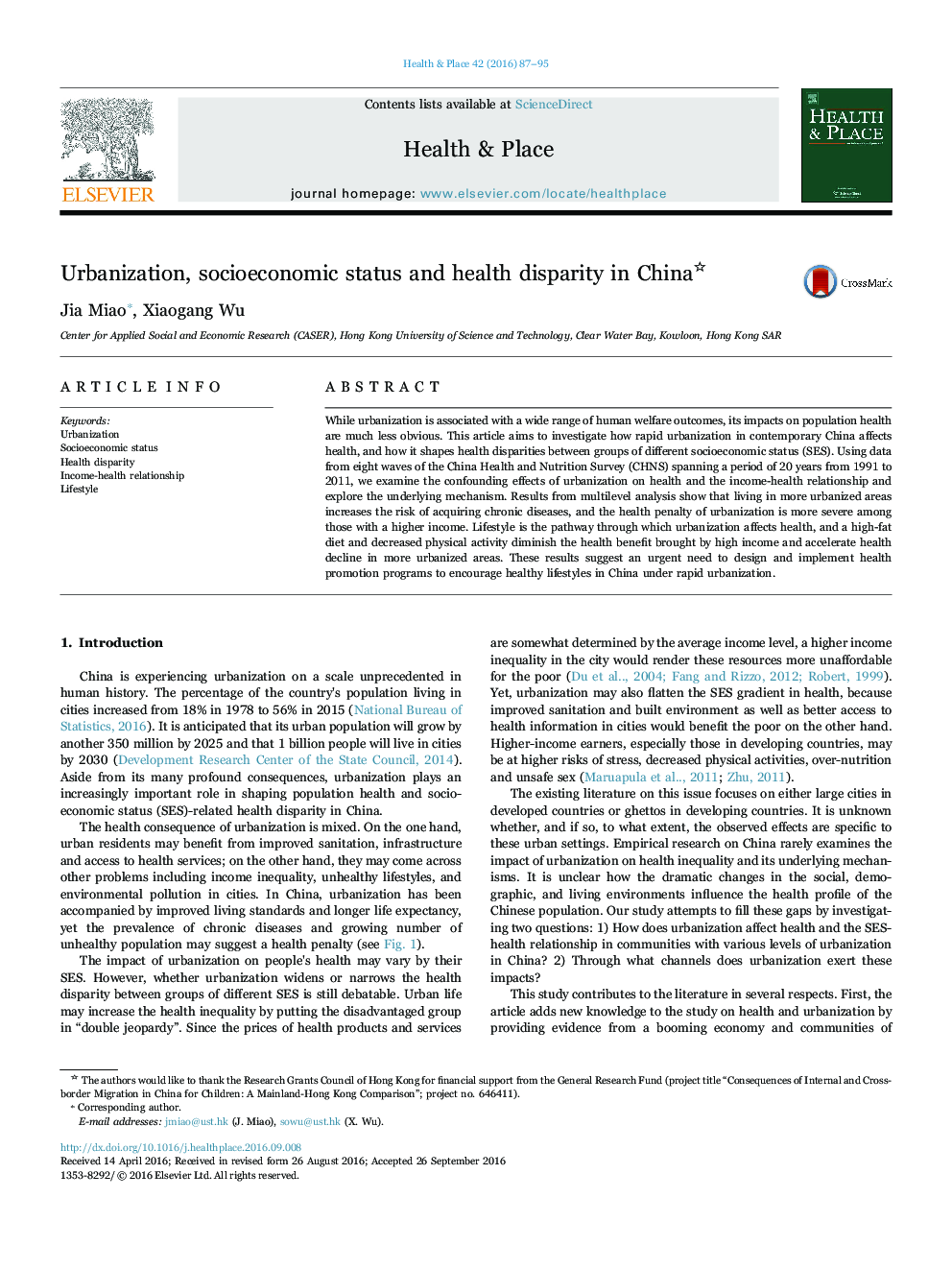| Article ID | Journal | Published Year | Pages | File Type |
|---|---|---|---|---|
| 5114894 | Health & Place | 2016 | 9 Pages |
Abstract
While urbanization is associated with a wide range of human welfare outcomes, its impacts on population health are much less obvious. This article aims to investigate how rapid urbanization in contemporary China affects health, and how it shapes health disparities between groups of different socioeconomic status (SES). Using data from eight waves of the China Health and Nutrition Survey (CHNS) spanning a period of 20 years from 1991 to 2011, we examine the confounding effects of urbanization on health and the income-health relationship and explore the underlying mechanism. Results from multilevel analysis show that living in more urbanized areas increases the risk of acquiring chronic diseases, and the health penalty of urbanization is more severe among those with a higher income. Lifestyle is the pathway through which urbanization affects health, and a high-fat diet and decreased physical activity diminish the health benefit brought by high income and accelerate health decline in more urbanized areas. These results suggest an urgent need to design and implement health promotion programs to encourage healthy lifestyles in China under rapid urbanization.
Related Topics
Health Sciences
Medicine and Dentistry
Public Health and Health Policy
Authors
Jia Miao, Xiaogang Wu,
